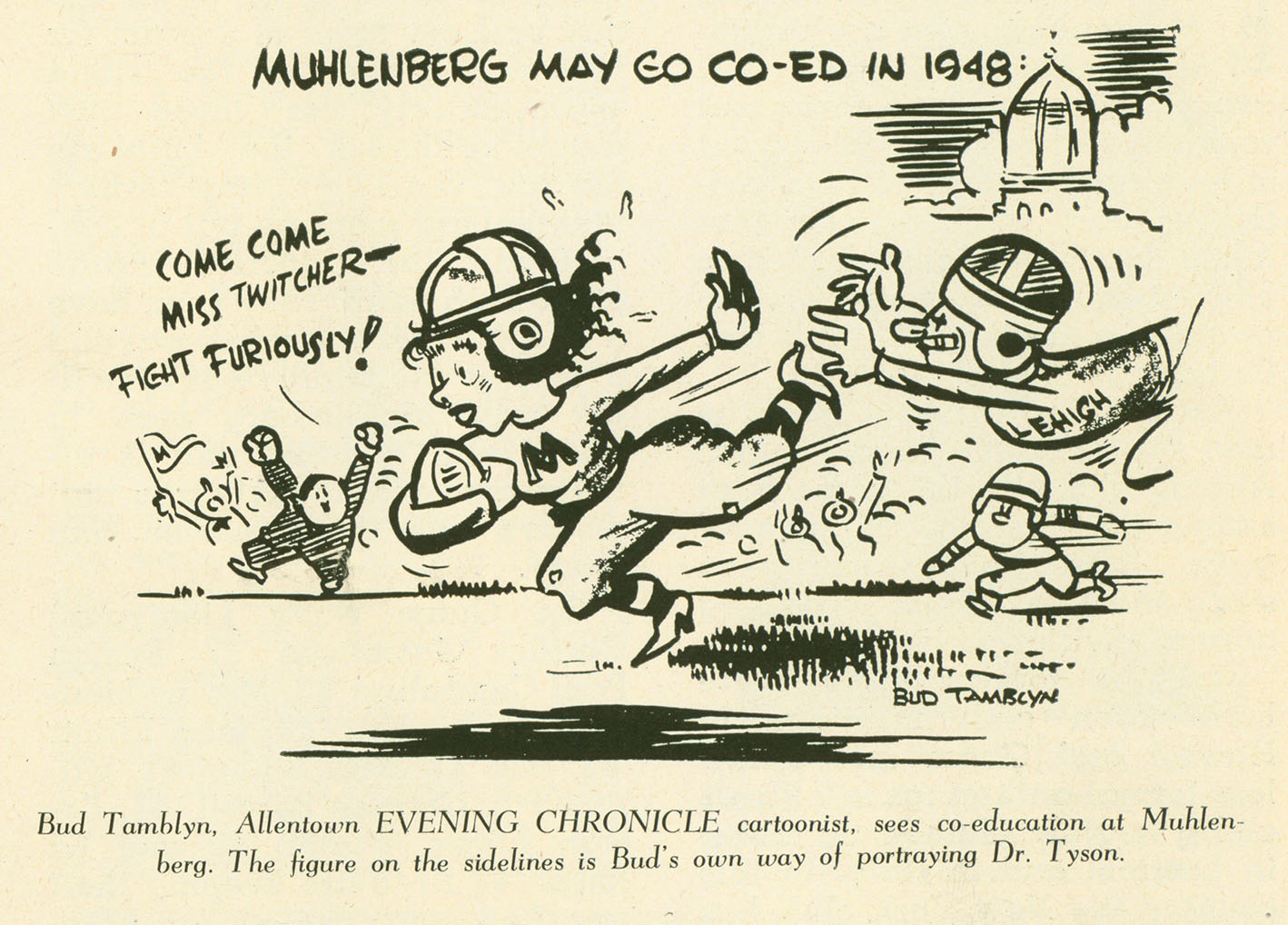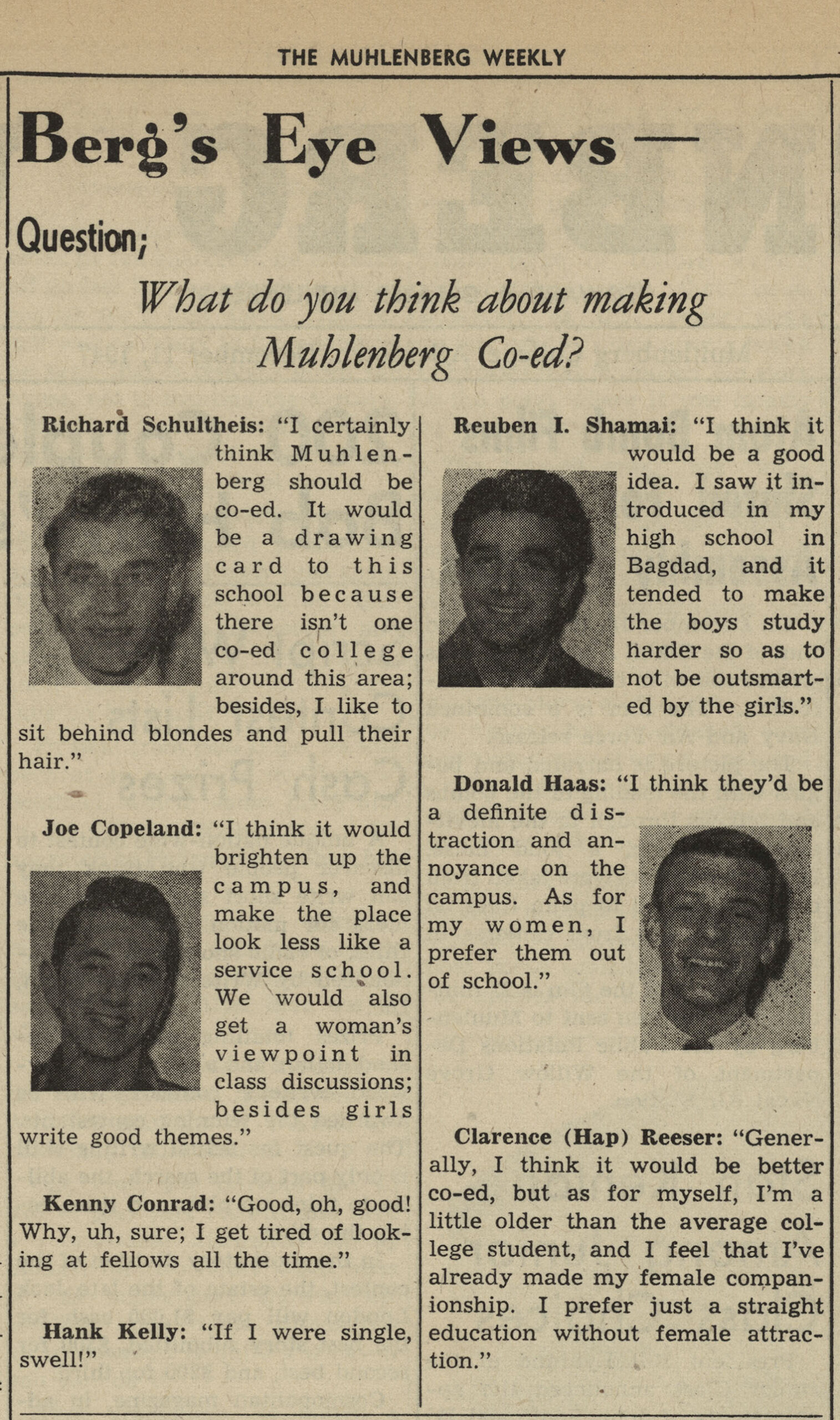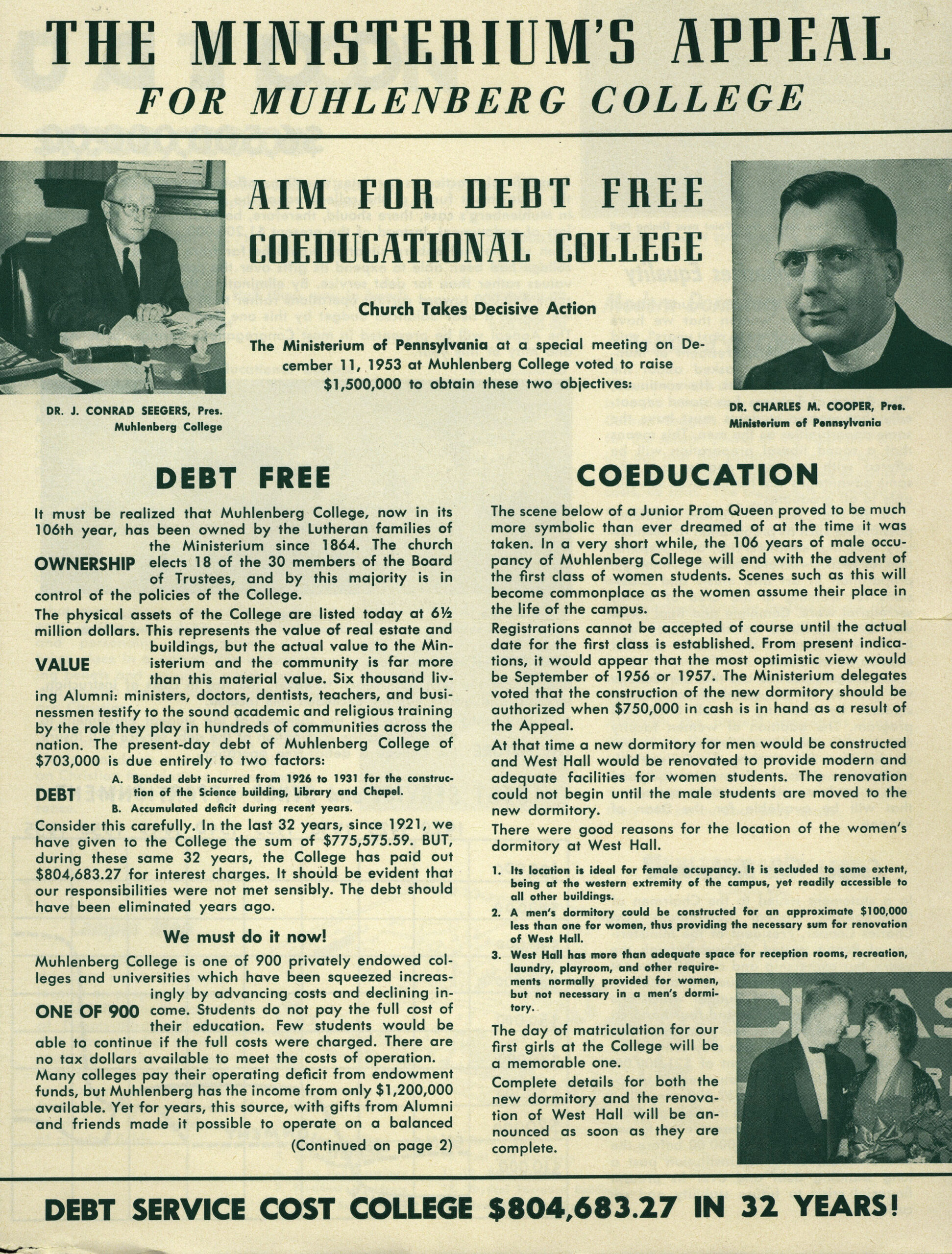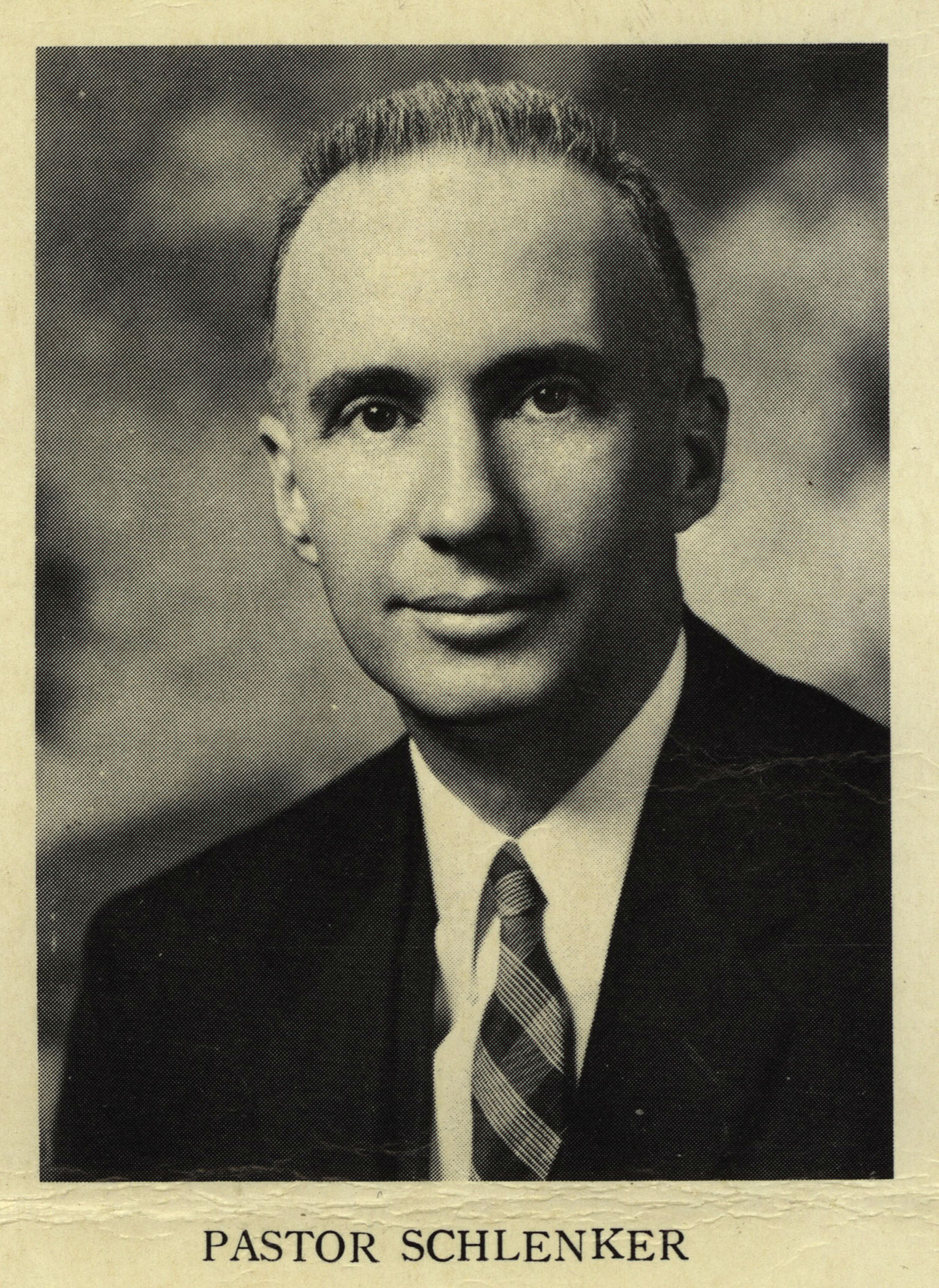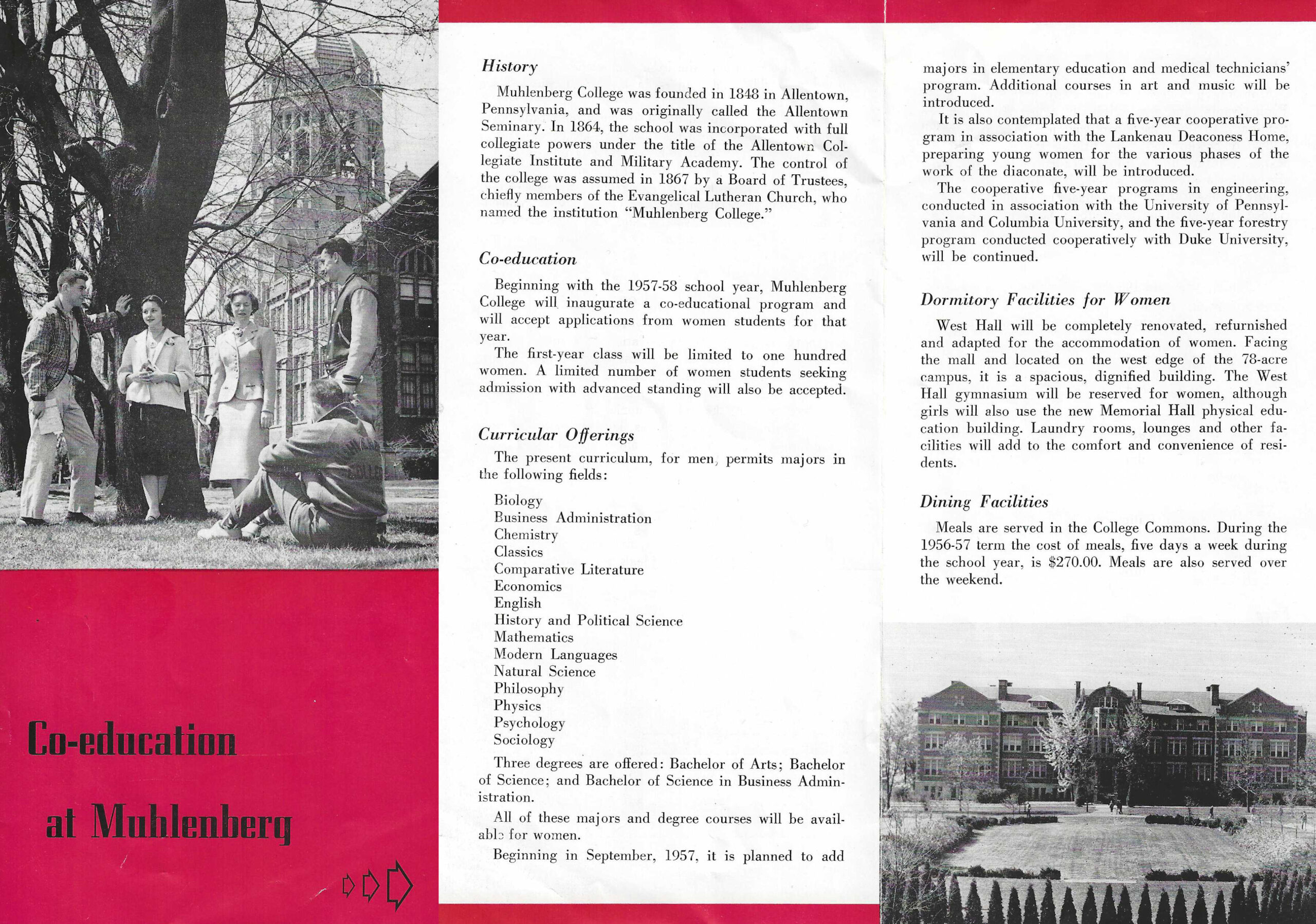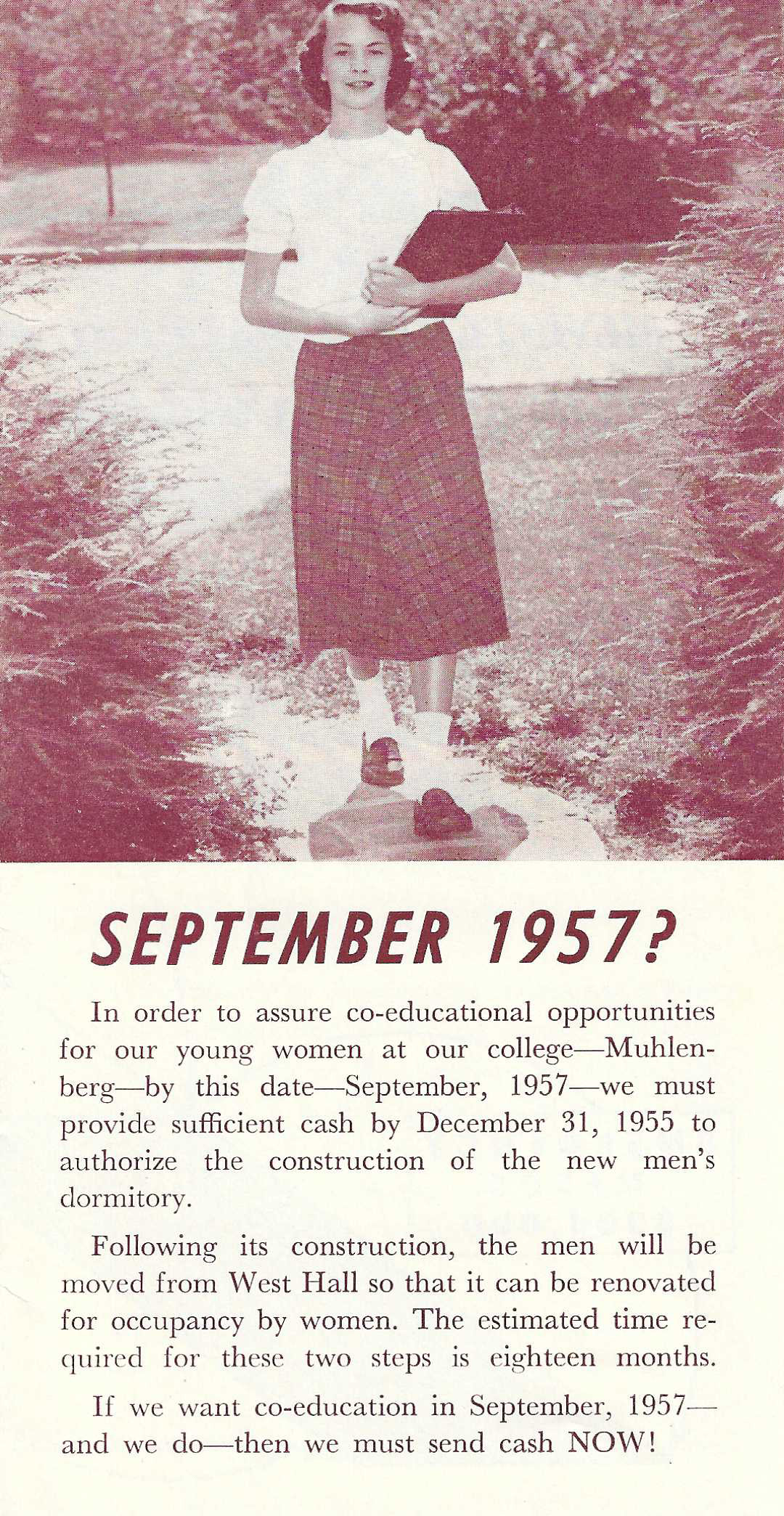The Muhlenberg Memories Project
Efforts toward Coeducation
The question of whether to make Muhlenberg College coeducational had surfaced periodically ever since the “gentleman’s agreement” between the Lutheran and Reformed Churches had divided male and female higher education between Muhlenberg and Cedar Crest in 1867.
The Pennsylvania ministerium had regularly lobbied Muhlenberg’s Board of Trustees to examine the question of admitting women, but the administration—in part, but not wholly due to the influence of long-time president John A.W. Haas (1904-1936)—remained convinced that the challenges to accommodating female students were too great: financially, logistically, and socially. The cost of building dormitories for women, the need to hire a Dean of Women and female faculty members, the fear of alienating Cedar Crest College by offering competition for female students, the private disapproval of alumni…all were brought forth as reasons to resist. The Lutheran Church put its hopes in a failed attempt to establish a women’s college in Maryland.
In 1942, President Levering Tyson undertook a survey of Muhlenberg faculty to assess their opinions regarding implementing coeducation at the college. While thirty-two of thirty-six replied that they were in favor of admitting female students into the regular college, the “whys” of their decision-making were not uniformly positive. However, Dr. Preston Barba, a Muhlenberg alumnus, spoke to the need for any progressive institution to embrace coeducation.
In 1947, after efforts to found a Lutheran women’s college floundered, representatives of the College and the Lutheran Synod engaged the services of the American Council on Education to study the feasibility of officially implementing coeducation. News of this study and the possibility of future female classmates spread all over the world via the newsletter that was sent to Muhlenberg servicemen still abroad. Letters expressing pro and con positions flowed in to the Alumni Secretary, with content ranging from “Muhlenberg would hardly be rendering a great service to society by becoming one more haven for future school marms” to “my wife is expecting and now I know, son or daughter, my child can attend ’Berg.”
The American Council on Education’s study recommended not implementing coeducation; rather, a joint relationship with Cedar Crest was advised. Ultimately, financial constraints provided the leverage that the Ministerium needed to facilitate coeducation; in November 1953, Muhlenberg’s Board of Trustees approved coeducation according to a plan by which the Ministerium would campaign to raise $1,500,000 to make the necessary changes to accommodate female students, while also paying off the College’s debt.
Luther Schlenker
Reverend Luther Schlenker ‘35 successfully led the Appeal for Muhlenberg College, taking leave from his pastorate and transforming his home into a fundraising office, speaking across eastern Pennsylvania to encourage Lutherans to contribute towards a collegiate experience for their young women. You may read more about Reverend Schlenker’s efforts in this 2007 Muhlenberg Magazine article commemorating the 50th anniversary of coeducation. His papers relating to the Appeal are available for research in the archives


